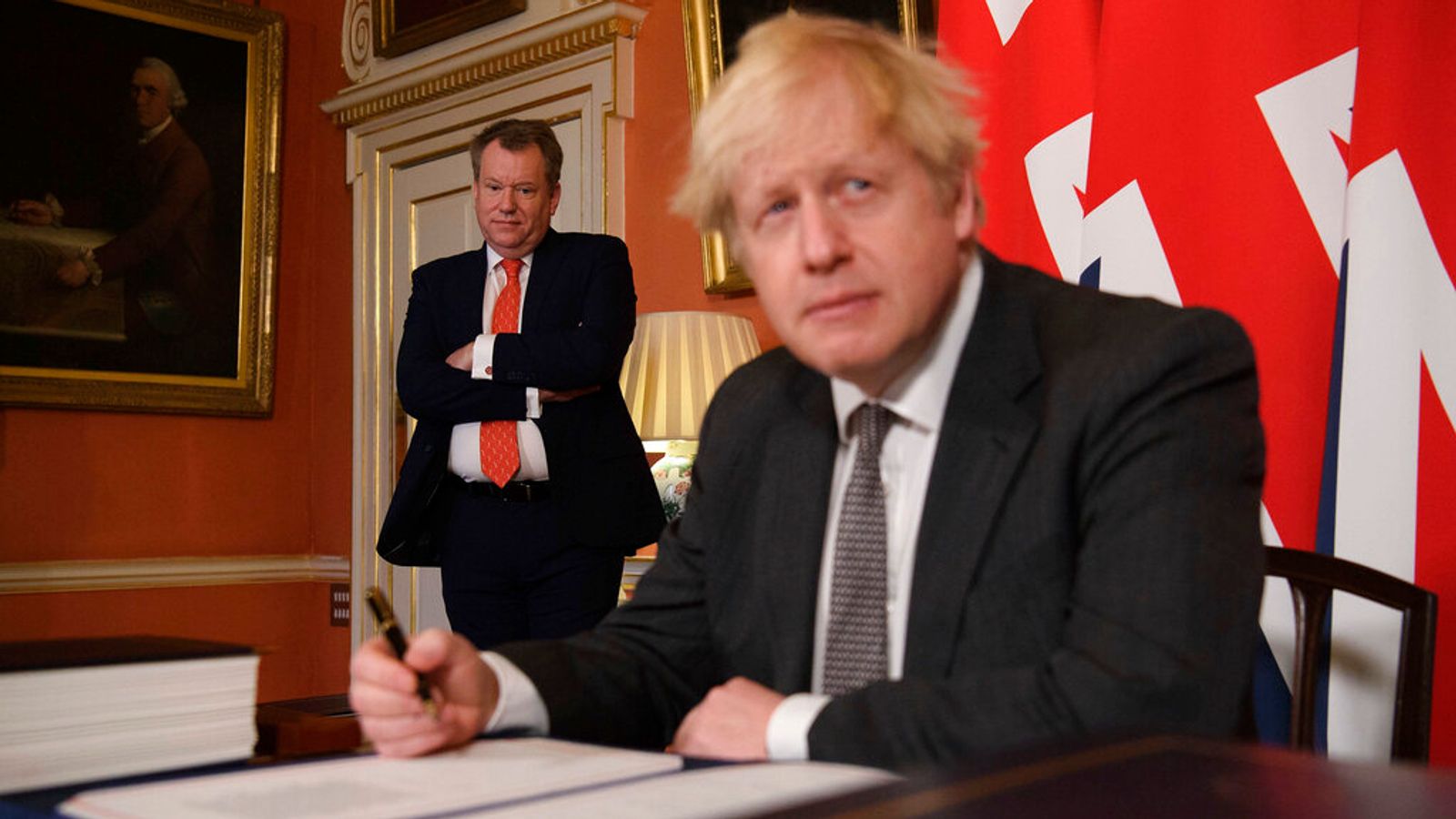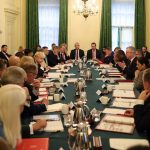A major backbench rebellion, a thumping by-election loss, and now a cabinet resignation.
Lord Frost’s departure from government marks the end of potentially the worst week of Boris Johnson’s premiership.
The former special adviser was seen as something of a bruiser in the Brexit negotiating brief.
Please use Chrome browser for a more accessible video player
He was brought in to toughen the UK line with Brussels and place “taking back control” at the centre of talks.
Ultimately, it seems this purity of vision for the country outside the EU has led Lord Frost to walk.
There were heavy hints about his discontent in a speech given at the Margaret Thatcher Conference on Trade last month.
“We have not successfully rolled back the frontiers of the European Union from Britain with Brexit, only to import that European model after all this time,” said the now former negotiator.
COVID-19: Boris Johnson faces a depressingly familiar decision over new restrictions, but seems willing to wait – for now
Lord Frost: Boris Johnson’s Brexit minister resigns from cabinet
Is Boris Johnson in trouble at the next election? Voters in key marginals like this one will decide
This broader objection to the direction of the government and unhappiness with higher taxes, the focus on net-zero and COVID regulations is understood to be the prime reason for Lord Frost’s departure.
But it’s impossible to ignore the ongoing negotiations with the EU over the Northern Ireland Protocol.
Subscribe to the All Out Politics podcast on Apple Podcasts, Google Podcasts, Spotify, Spreaker
Briefings have emerged recently suggesting that the UK may be about to change its stance on the involvement of the European Court of Justice.
Whilst there is no direct claim this has contributed to Frost’s exit, what Boris Johnson does next has the potential to add to his pile of political problems.
For some Tory MPs, Lord Frost was seen as a guardian of Brexit, someone that could be relied on to deliver the clean break they desired.
If his replacement is perceived as someone more prone to bending to the will of Brussels, that could agitate already irate backbenchers and sap more support from the Prime Minister.
As with everything, the reality of the Frost/Johnson dynamic is likely more complex than it appears on the surface.
Former Downing Street adviser Nikki da Costa tweeted on Saturday that Lord Frost was “often the tempering voice advising the PM that a little more time was needed, or highlighting the complexity”.
But in politics, perception matters.
And the loss of someone admired by the very members of the Conservative Party already beginning to doubt Boris Johnson’s political abilities matters too.
A chaotic end to a chaotic winter; discontent in Downing Street and out.






















